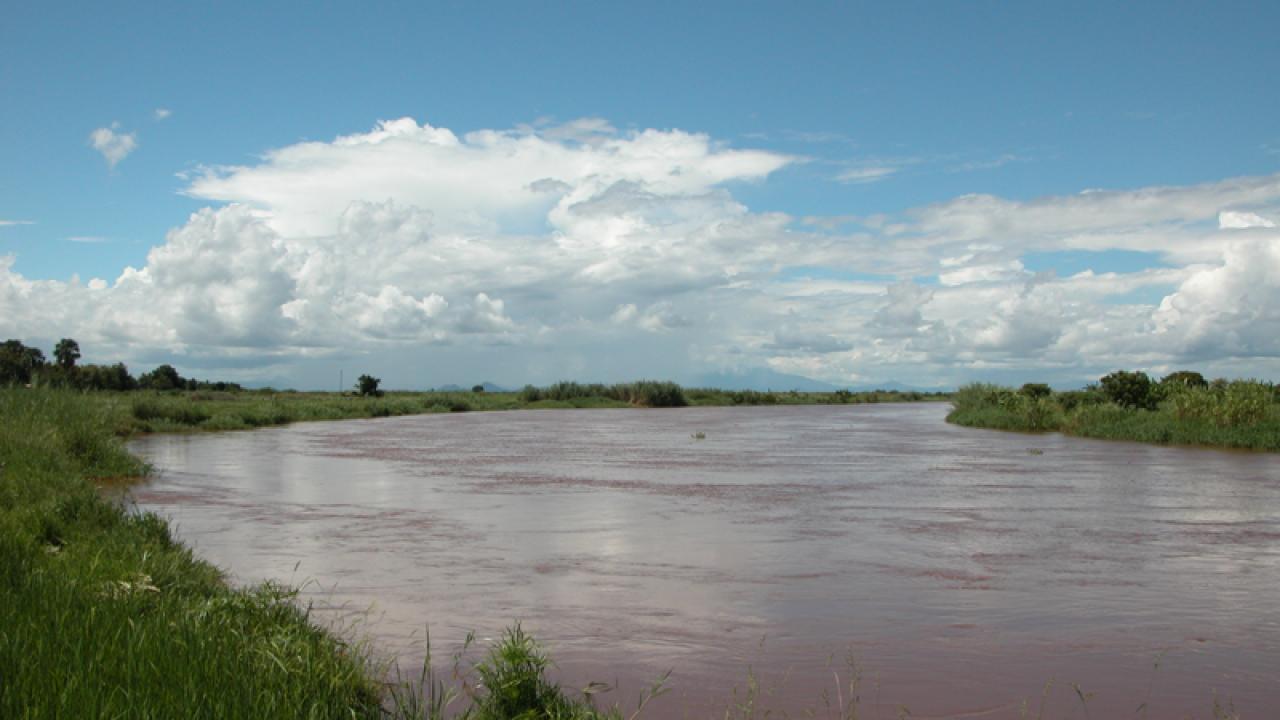
Farmers working together as communities can transform landscapes. In Malawi, where erosion and sedimentation put pressure on Shire River Basin hydroelectric plants, sustainable land management practices could keep productive soils in place, increasing productivity and resilience while lowering the cost of producing power. MRR Innovation Lab researchers are putting small-scale farmers in the lead in designing the most productive community incentive structures for adopting conservation agriculture and other sustainable practices.
Project Overview
Lead Principal Investigator: Andrew Reid Bell, Cornell University
Project Partners: Boston University, Duke University, Government of Malawi, Lilongwe University of Agriculture and Natural Resources, UC Santa Barbara, World Bank
Development Innovation: Payments for Ecosystem Services (PES)
Commodity: Multiple
Targeted Population: Small-scale farmers
Country/Location: Malawi
Timeline: 2020-2025
Funding: $865,983 ( (USAID)
The Challenge
Soil erosion from poor land management in rural areas of Sub-Saharan Africa is a crisis at multiple scales. Small-scale farmers near watersheds lose productive land and eroded sediment chokes off both aquatic habitats and hydropower production.
Sustainable Land Management (SLM) is a suite of soil, crop and livestock management practices widely promoted to address the crisis of soil erosion. These practices include planting trees and mulching crop residues as well as refraining from tilling or planting near watercourses.
Despite the widely shared benefits of SLM, uptake remains low.1 Adoption requires farmers to shoulder significant risks in incurring costs up front for personal benefits that accrue later or perhaps not at all.
SLM is critical in Malawi, where the hydropower provided by ESCOM/EGENCO, which generates more than 90 percent of the nation’s electricity, is at risk from sedimentation caused by agricultural runoff in the Shire River Basin. Research supported by Feed the Future has shown that the cost of paying farmers to adopt practices to reduce sedimentation should, at least in principle, be significantly lower than the downstream costs of removing sediment from electricity-generating turbines.2
Within such PES programs, downstream beneficiaries like ESCOM/EGENCO would pay farmers who provide environmental services that minimize runoff and sedimentation.
That there is a single hydropower provider willing to be creative in reduce the costs from sedimentation greatly reduces the complexity of organizing the demand for such changes in agricultural practices. Yet the distributed network of millions of smallholder farmers whose practices are relevant is a major implementation challenge. Paying farming communities in groups, such as through payments for ecosystem services (PES) programs implemented at a village scale, has the potential to significantly lower the transaction costs of payments programs.
Research Design
Group-focused PES programs must address how groups coordinate actions and how group payments are distributed. PES designs that pay everyone equally based on group achievements might motivate free-riding. Inequitable distributions of net benefit, on the other hand, can limit participation and thus PES’ ability to drive landscape-scale changes. Uncertainty over which design features of a group-level PES best address these dual challenges motivates the two primary questions that the project addresses with framed field experiments and a large-scale field trial: (i) Can group-level discretion in choosing how group-level benefits are distributed facilitate trust-building, efficient targeting of incentives, and the achievement of collective targets? (ii) Can group-level discretion in choosing how individual contributions are monitored facilitate the control of free-riding and the achievement of collective targets?

To inform these questions, the project partners with a tree seedling distribution program run by the Lilongwe Water Board, and designs a randomized control trial (RCT) to offer different payment structures to villages receiving seedlings to encourage efforts toward seedling survival. The program engages 500 villages within the Lilongwe River Basin currently participating in the tree seedling program, offering 500 Malawi Kwacha (approx. 0.3 USD) for each of 500 seedlings that remain alive one year after planting, issued as a voucher for use at a local agrodealer. Seedling survival will be monitored at scale using an unmanned aerial vehicle and a machine-learning algorithm to identify survival at large scale.
The treatment design varies how vouchers are awarded to the group–distributed equally, allocated by a leader, or distributed through public and joint processes. To complement the RCT, the research team is conducting a framed field experiment (FFE) that leverages a powerful yet inexpensive way to tailor the design of an agricultural intervention—an experimental game for farmers that simulates a coordination dilemma for adopting SLM practices. This game will provide a forum to test many combinations of payment levels, distribution processes and adoption targets for promoting cooperation on adoption.
Development Impact
This project will augment existing long-running initiatives by the Lilongwe Water Board to improve riparian vegetation and reduce soil erosion. It will explore how efforts invested in tree planting can be extended forward into efforts for tree survival, internalizing the cost borne by land users in expanding soil health and erosion control as ecosystem services.
More broadly, The Shire River Basin is an ideal context for testing an innovative program of PES to address erosion by empowering local decision making that both benefits local groups and preserves broader systems by sharing the investments and benefits of PES inclusively and equitably.
[1] Emerton, L., et al. 2018. “Rethinking Sustainable Land Management Planning: Understanding the Social and Economic Drivers of Farmer Decision-Making in Africa.” Land Use Policy.
[2] Bell, A., et al. 2018. “Transformative Change through Payments for Ecosystem Services (PES): A Conceptual Framework and Application to Conservation Agriculture in Malawi.” Global Sustainability.
This report is made possible by the generous support of the American people through the United States Agency for International Development (USAID) cooperative agreement 7200AA19LE00004. The contents are the responsibility of the Feed the Future Innovation Lab for Markets, Risk and Resilience and do not necessarily reflect the views of USAID or the United States Government.
